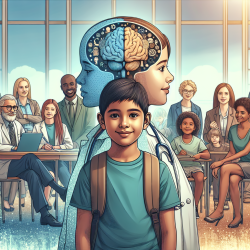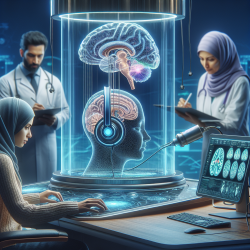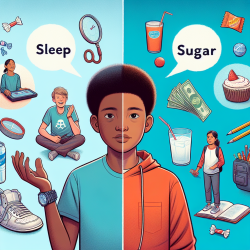Child and adolescent mental health services in India have long been underdeveloped, with significant gaps in care for the nation's youth. The research article "Research in child and adolescent psychiatry in India" by Shastri et al. (2010) provides critical insights into the state of mental health services and highlights areas for improvement. By leveraging these insights, practitioners can enhance their skills and contribute to better outcomes for children.
The article underscores the importance of a multidisciplinary approach to child psychiatry. Key team members include:
- Psychiatrists
- Psychologists
- Social workers
- Neurologists
- Pediatricians
- Occupational therapists
- Speech therapists
- Physiotherapists
- Special educators
- Art, music, and drama therapists
- Cytogenetic experts
Effective collaboration among these professionals can significantly improve the quality of care provided to children with mental health issues. For practitioners, embracing a team-based approach and actively collaborating with colleagues from different disciplines can lead to more comprehensive and effective treatment plans.
Another critical takeaway from the research is the need for school-based mental health programs. These programs have been successfully implemented in metropolitan areas but are still lacking in smaller towns and rural regions. School-based interventions can help identify and address mental health issues early, preventing the development of more severe problems. Practitioners working in educational settings should advocate for the establishment and expansion of such programs to ensure that all children have access to mental health support.
The article also highlights the importance of early intervention, particularly for conditions such as Attention-Deficit/Hyperactivity Disorder (ADHD), conduct disorders, and developmental disorders. Early diagnosis and treatment can significantly improve long-term outcomes. Practitioners should prioritize early screening and intervention efforts, especially in high-risk populations.
Family dynamics play a crucial role in the mental health of children. The research indicates that broken homes and adverse child-rearing practices can contribute to the development of mental health issues. Practitioners should consider family therapy and parental counseling as integral components of treatment plans. By addressing family dynamics, practitioners can create a more supportive environment for the child's mental health.
Substance abuse and its impact on child laborers is another area of concern highlighted in the research. Practitioners working with vulnerable populations should be vigilant in screening for substance use and providing appropriate interventions. This includes offering education on the risks of substance abuse and connecting children and their families with resources for support and treatment.
Finally, the research underscores the need for ongoing professional development and engagement with the latest research. Practitioners should stay informed about emerging trends and evidence-based practices in child and adolescent psychiatry. Engaging in continuous learning and research can enhance the quality of care provided and contribute to the advancement of the field.
To read the original research paper, please follow this link: Research in child and adolescent psychiatry in India.










